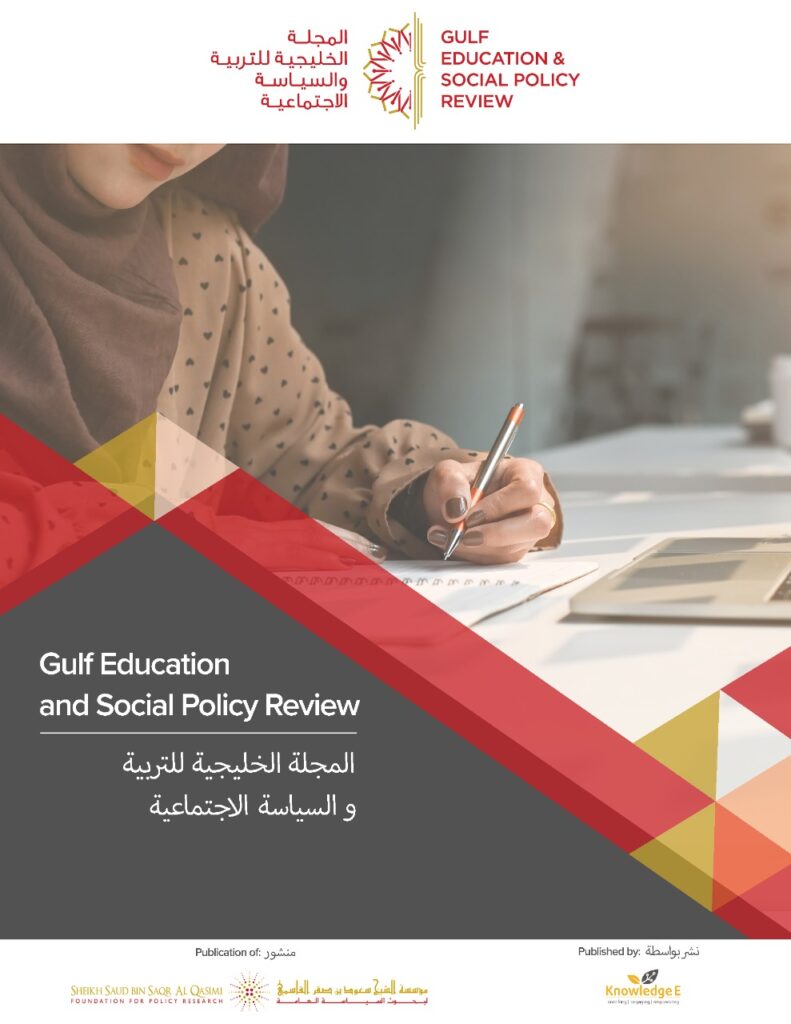
Gulf Education and Social Policy Review
ISSN: 2709-0191
Pioneering research on education and social policy in the Gulf region.
“Welcome to our Coastal Community”: Field Notes from Abu Dhabi’s Maritime Heritage Festival Circuit
Published date: Feb 20 2025
Journal Title: Gulf Education and Social Policy Review
Issue title: Gulf Education and Social Policy Review (GESPR): Volume 6, Issue 1
Pages: 27 - 38
Authors:
Abstract:
This article contextualizes and explores two important cultural heritage festivals in the Emirate of Abu Dhabi: The Abu Dhabi Maritime Heritage Festival and the Dalma Historic Race Festival. These festivals are distinctly maritime in nature, and are noteworthy manifestations of broader trends in the regional cultural heritage landscape. As such, they are ideal sites to study – and shape – educational efforts about the region’s past. After offering commentary on some temporal and spatial aspects of these festivals, this article offers suggestions for increased reach and educational effectiveness of the events, focusing on their pedagogical strategies and their emplacement along the UAE’s coastline.
Keywords: Maritime heritage, UAE, Fishing, Pearling, Event ethnography
References:
[1] Agius, D. (2005). Seafaring in the Arabian Gulf and Oman: People of the Dhow. Routledge.
[2] Agius, D. (2007). Classic ships of Islam: From Mesopotamia to the Indian Ocean. Brill.
[3] Bishara, F. A. (2017). A sea of debt: Law and economic life in the Western Indian Ocean. Cambridge.
[4] Donaldson, W. (1979). Fishing and fish marketing in Northern Oman: A case study of artisanal fisheries development [Doctoral dissertation, University of Durham]. Durham e-Theses. https://etheses.dur.ac.uk/1865/
[5] Hopper, M. (2016). Slaves of one master: Globalization and slavery in Arabia in the age of empire. Yale University Press.
[6] Khalili, L. (2020). Sinews of war and trade: Shipping and capitalism in the Arabian Peninsula. Verso Books.
[7] Koch, N. (2023). Event ethnography: Studying power and politics through events. Geography Compass, 17(12), e12729. https://doi.org/10.1111/gec3.12729.
[8] Limbert, M. (2010). In the time of oil: Piety, memory, and social life in an Omani town. Stanford University Press.
[9] Low, S., Simpson, T., & Scheld, S. (2019). Toolkit for the ethnographic study of space. Public Space Research Group.
[10] Macel, C. (2012). The light of Al-Khalij: Portraits of Emirates coastline. In Z. Antar (Ed.), Portrait of a territory. Actes Sud/Sharjah Art Foundation.
[11] Mahajan, N. (2019). Dhow itineraries: The making of a shadow economy in the Western Indian Ocean. Comparative Studies of South Asia, Africa, and the Middle East, 39(3), 407–419. https://doi.org/10.1215/1089201X-7885356
[12] McDow, T. (2018). Buying time: Debt and mobility in the Western Indian Ocean. Ohio State University Press.
[13] Staples, E. (2018). Ships of the Gulf: Shifting names and networks. In A. Fromherz (Ed.) The Gulf in world history: Arabia at the crossroad. Edinburgh University Press.
[14] Staples, E., & Al-Salimi, (2019). A maritime lexicon: Arabic nautical terminology in the Indian Ocean. Georg Olms Verlag.